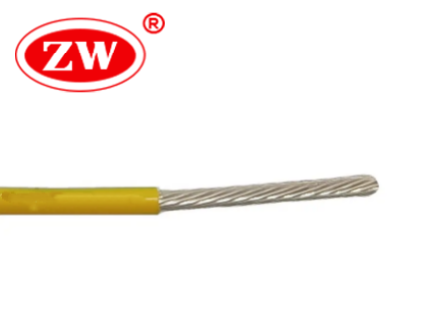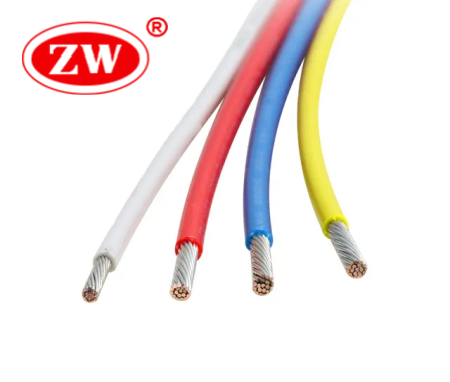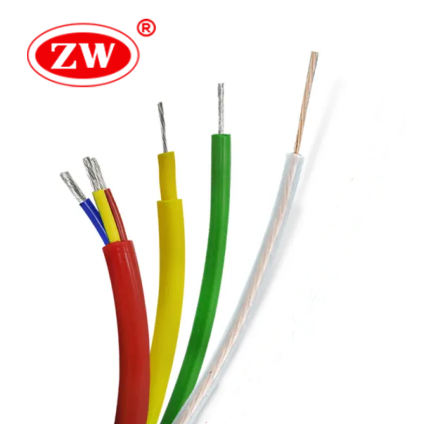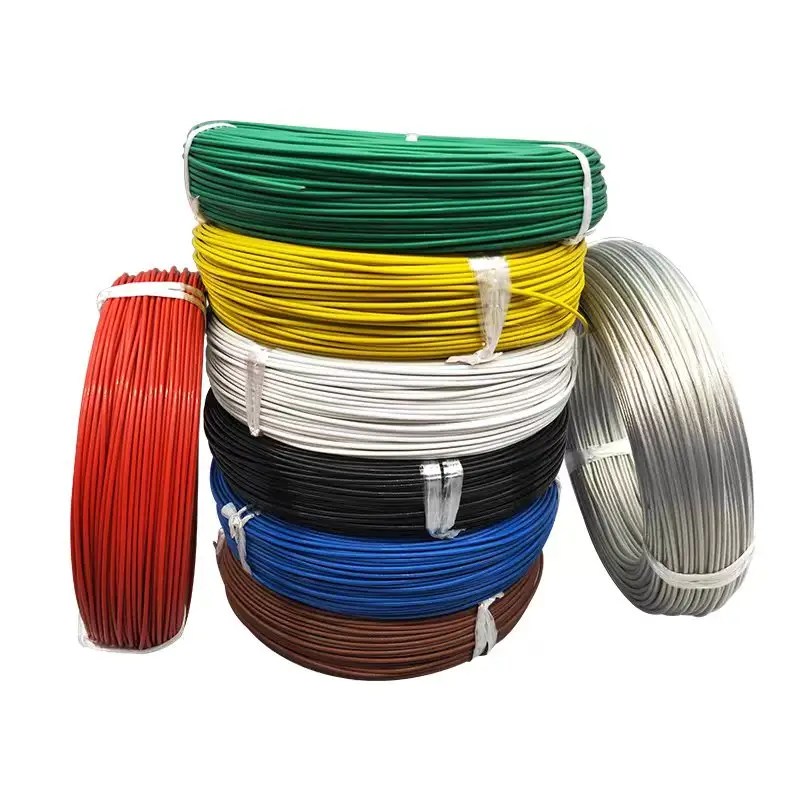

PTFE Wire/Single Conductor
- According to UL758 Standard
- FEP Insulation
- Approved by UL ISO
- Place of Origin: Henan, China
- In Stock
- Number of Cores: 1
- HS Code: 8544492900
- Packing: 100 Meters
- MOQ: 3050 Meters
- 300V/600V
PTFE wire belongs to a type of high temperature wire, the conductor is silver-plated copper or nickel-plated copper. PTFE refers to the outer layer of the conductor is covered with a layer of polytetrafluoroethylene (PTFE) material as the insulation to protect the electrical wire. PTFE full name is polytetrafluoroethylene, PTFE wire insulation can provide more electrical possibilities for the wire. PTFE wire Current Rating is Determined by the ptfe wire size. PTFE insulated wire has excellent chemical resistance, high temperature stability, and dielectric properties that allow it to be used in high temperature and corrosive environments, and is commonly used in aerospace, natural gas, industrial, and automotive applications.
PTFE Wire specification
Nominal temperature ratings: -60°C to 260°C
Fire resistance: Excellent
Chemical resistance: Excellent
UV resistance: Excellent
Durability: good
Flexibility: fair


